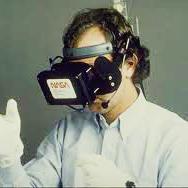We introduce a gaze-tracking--free method to reduce OLED display power consumption in VR with minimal perceptual impact. This technique exploits the time course of chromatic adaptation, the human visual system's ability to maintain stable color perception under changing illumination. To that end, we propose a novel psychophysical paradigm that models how human adaptation state changes with the scene illuminant. We exploit this model to compute an optimal illuminant shift trajectory, controlling the rate and extent of illumination change, to reduce display power under a given perceptual loss budget. Our technique significantly improves the perceptual quality over prior work that applies illumination shifts instantaneously. Our technique can also be combined with prior work on luminance dimming to reduce display power by 31% with no statistical loss of perceptual quality.
翻译:暂无翻译



